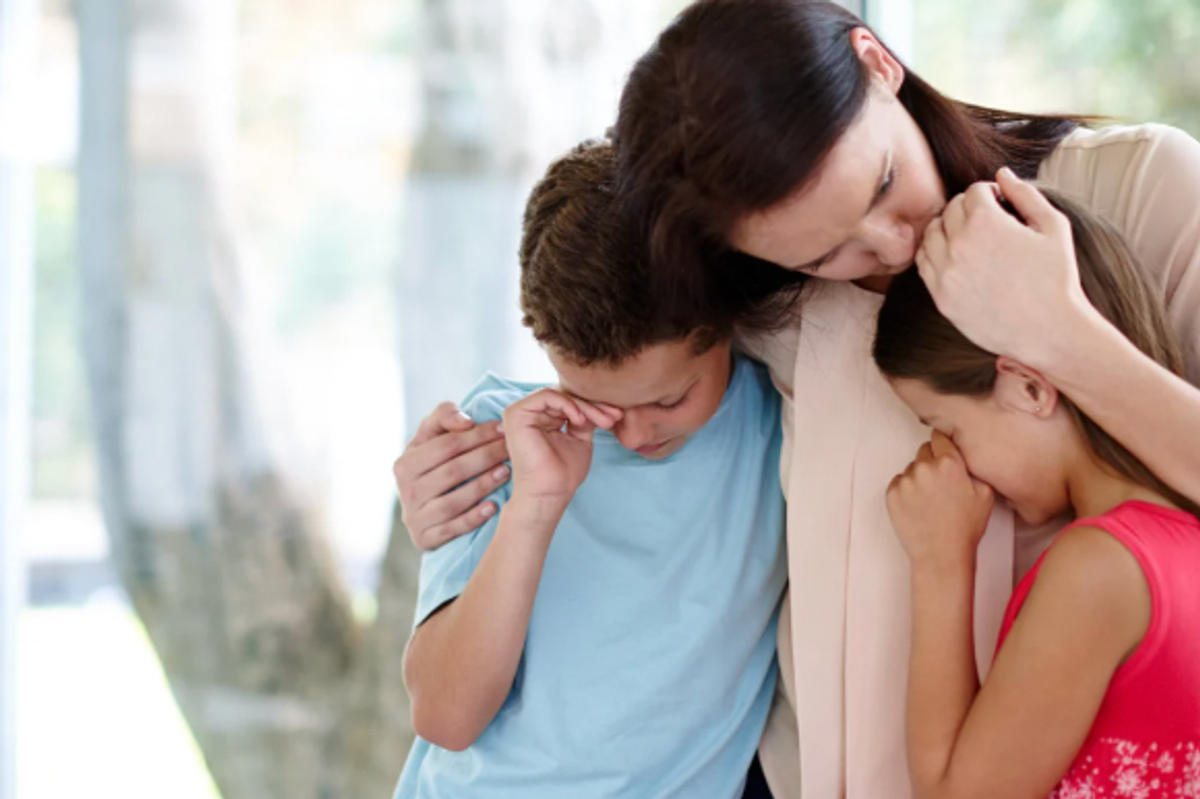'Either way you've been there before.' Mom has beautiful way to explain death to her kids.
It works for adults too.
"Either way you've been there before."
We talk a lot about the awkwardness of having that inevitable “birds and the bees” talk with our kiddos, but there’s another conversation topic bound to be even more anxiety inducing: what happens after we die.
It’s a difficult question for parents to answer, since not even we really know what happens after we pass on. Those who subscribe to a religious belief connected to an afterlife might have perhaps an easier time initially, but even then, there are bound to be very complex follow-up questions that aren’t so easy to navigate…especially in a way that kids can understand without getting overwhelmed. Because let’s face it, it’s an overwhelming topic no matter what age you are.

And yet, a mom named Penny offered to share how she has the “death talk" with her young ones, and it’s actually pretty darn solid.
Because every bit of it is great, we’re just putting the whole thing down below:
“When my kids would say ‘Mommy, where do you go after you die?’ I would tell them, ‘I think you probably just go to wherever you were before you were born.’ And they’d ask me ‘Where is that?’ and I’d say ‘I don’t know. I don’t remember. It might be a place, it might be nothing. Either way, you’ve been there before. Because before you were here if you were somewhere else you were OK. And if you were nowhere that was OK, too. So if you die and you go somewhere else, you’ll be OK. But if you die and it’s nothing you’ve been in nothing before and it was OK. It’ll be OK then, too.’”
@iwillfightyourdad Shockingly we haven’t had a single existential crisis after this discussion.
Tearing up? Don’t worry, you’re not alone.
“Okay but why did this make me cry,” one person wrote. Others noted how these were equally wise words for adults who might be dealing with their own death anxiety.
“Are you sure this is an answer for kids? Because I think you just cured my fear of death as a 35 yo,” one person quipped.
Another echoed, “as an adult who panics about there being nothing after death…this brought me bittersweet comfort. That my deepest fear could be true, but to take a different perspective on it.”
Penny’s words echo that of poet and Epicurean philosopher Lucretius, who viewed death as simply a return to the non-existent state we were in before birth. If one doesn't fear the time before their birth, they shouldn't fear the time after their death, he argued.
In his book On the Nature of Things, Lucretius wrote:
“Consider the time before we were born: we felt no distress when the Carthaginians were attacking Rome on every side; and the whole world was shaken by the frightening tumult of that war… and in the same way in the future, when we shall no longer exist, and the final breaking up occurs for the body and spirit from which we are now compounded into a single unit, nothing whatever will be able to happen to us, or produce any sensation — not even if the the earth should collapse in to the sea, or the sea explode in the sky…”
- YouTube www.youtube.com
Beautifully written, but we can easily see how Penny’s “Either way, you’ve been there before” version is a little easier to comprehend for kids and adults alike.
Obviously, with a complex subject like this, there will be several layers of conversations to be had and feelings to process. After all, no one has all the answers…and that can be scary. But wisdom like this can certainly help navigate through that murky terrain. Several folks are calling for Penny to make this into a children’s book, so who knows? Maybe parents will soon have it as a little companion when they have the Grim Reaper chat with their littles. Or to come back to for themselves.
If not, they can always go back to her very thoughtful video.
- Hospice nurse shares clue she uses to know if someone is dying 6 months before it happens ›
- Hospice cat 'predicted' death, snuggling up to nursing home residents hours before they died ›
- A 'death box' may sound morbid, but it's actually a priceless gift for your loved ones ›
- Teacher explains what grief is to her students with vase - Upworthy ›

